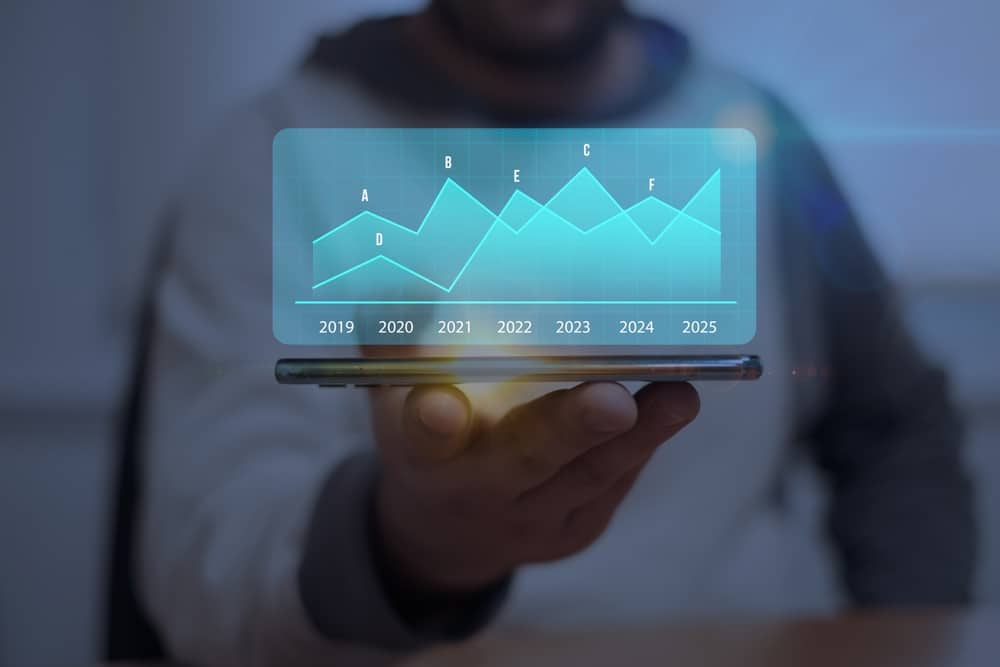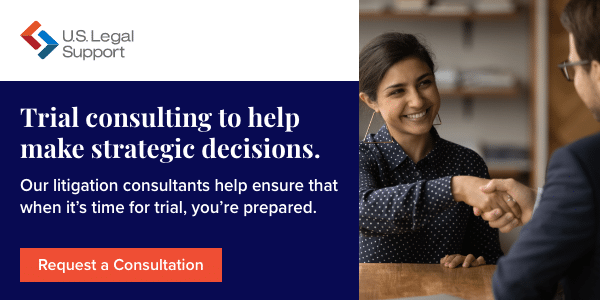How Litigation Analytics Drive Case Strategy

The advancements of data analytics in this century have transformed how decisions are made in many professions. Rather than an educated human guess, analytics can find patterns, provide guidance, and predict outcomes based on past behaviors documented in millions of data points.
While the legal industry is built on the individual experience, skills, and savvy of attorneys—and their collective expertise and acumen as firm leaders—litigation analytics is gaining ground in providing rich insights that help refine decision-making.
The Role of Litigation Analytics in Case Strategy
Litigation analytics refers to the application of data science to the practice of the law. At a case level, it’s essentially slicing, dicing, and studying data that can provide information useful to the process of and decisions inherent in developing a case strategy.
The data, however, must be complete and accurate to provide useful intelligence.1 Sources and timeframes of data collection—like court dockets, case opinions, proprietary legal databases—can vary significantly across providers.2
Employing litigation analytics can:
- Contribute to pre-commitment case reviews and early case assessments
- Help predict outcomes based on prior trials, settlements, and determinations
- Provide insights on judges, opposing counsel, and potential expert witnesses
- Inform the development of a case theory, theme, story, and arguments
- Identify goals, subjects, and examination approaches during discovery
- Help support client guidance
Assessing Judges, Opposing Counsel, and Venues
Data insights can’t guarantee an outcome, but the best predictor of future behavior—more so than public personas or claims—is past behavior. Litigation analytics provides information that can both inform decisions and help you strategize to work with circumstances over which you don’t directly control.
For judges, you can leverage analytics to research how these factors interrelate and break down3:
- Types of cases heard
- Case volume
- Speed of adjudication
- Damages awarded
- Opinions by area of law
- Affirmations and reversals (in full or in part) upon appeal
- Common case citations by issue
- Judgment favorability for plaintiffs/defendants
You can also analyze how often a judge grants motions by type, how long it takes when they do so, and how those patterns compare to their colleagues at geographic and specialty levels:
- Summary judgment
- Class certification
- Venue change
- Directed verdict
- Judgment n.o.v. or to set aside judgment
- Dismissal or termination
Similarly, you can research attorneys and firms to identify useful patterns by digging into:
- Case volume, types, and specialties
- Client characteristics
- Rates of and speed to trial, negotiation, settlement or plea, and appeal
- Use of and outcome for types of motions
- Client outcomes
- Trends exhibited in arguments, trial themes, demonstrative characteristics, case law citations, and other areas
Finally, you can apply the same principles to venues. How does Venue A compare to Venue B when it comes to:
- Case volume, speed, and types heard
- Judgment favorability for plaintiffs/defendants
- Damages awarded
- Outcomes (e.g., class certification, summary judgment, directed verdict, dismissal)
- Rates of affirmations and reversals (in full or in part) upon appeal
Predictive Modeling for Case Outcomes
Once you accumulate a strong body of data insights, the next step is to employ them to predict possible outcomes based on different variables. Predictive modeling uses tools and methods that include:
- Regression analysis to identify the relationships and impact of multiple variables
- Decision trees to arrive at potential outcomes based on different variables
- Machine learning algorithms to identify patterns, make predictions, and learn from data
With predictive modeling built on past outcomes and litigation patterns, you can consider and compare different approaches, scenarios, and likely outcomes to help:
- Identify the optimal amount of damages
- Choose the right venue or decide whether to file for a venue change
- Design impactful themes, strategies, and arguments
- Predict timelines and case budgets
- Pinpoint case laws and motions to avoid or rely on
Key Benefits of Litigation Analytics for Law Firms and Legal Teams
Firms need to find a balance between jumping to the newest option every month and remaining stuck on swiftly aging software or processes. Litigation analytics is like any area that requires balancing future investment with today’s workload, but the potential benefits are substantial:
- Optimized case strategies that boost successful outcomes
- Increased efficiency with insights that move case planning forward
- Smarter decision-making with a data-driven and documented basis
- Risk management within a logical framework
- Increased value for clients and more clarity and rationale for recommendations
- Novice attorneys equipped with deeper insights
- Identification of firm-specific patterns that help optimize client and case decisions
- A competitive advantage over firms that don’t move forward
Choose the Right Partner for Litigation Support
We’re in an era of technology development that’s helping attorneys and firms make leaps forward in efficiency and effectiveness, with litigation analytics as a leading opportunity that provides significant benefits.
Choose a litigation support partner that offers integrated, tech-enabled solutions to stay ahead of a fast-changing industry and improve your litigation readiness.
When you work with the trial services division of U.S. Legal Support, you have access to our TrialQuest experts in litigation preparation and consulting. With decades of experience supporting more than 53,000 high-risk trials, arbitrations, and mediations across nearly all practice areas and jurisdictions, our team understands how to leverage data analytics along with the rest of our toolbox to offer a winning edge to attorneys.
We support firms and attorneys nationwide with jury research and consulting, mock trials, witness preparation, trial graphics, demonstratives, and trial presentation and technology services.
Curious to find out more about how litigation analytics can drive your case strategy? Reach out today to learn how TrialQuest can help.
Sources:
- Law.com. The Roadmap of Litigation Analytics. https://www.lawjournalnewsletters.com/2021/11/01/the-roadmap-of-litigation-analytics/
- Charles Widger School of Law Library. Resources for Litigators: Litigation Analytics. https://libguides.law.villanova.edu/ResourcesforLitigators/litanalytics
Notre Dame Law School NDLScholarship. Litigation Analytics: A Framework For Understanding, Using & Teaching. https://scholarship.law.nd.edu/law_faculty_scholarship/1463/

Editoral Policy
Content published on the U.S. Legal Support blog is reviewed by professionals in the legal and litigation support services field to help ensure accurate information. The information provided in this blog is for informational purposes only and should not be construed as legal advice for attorneys or clients.


